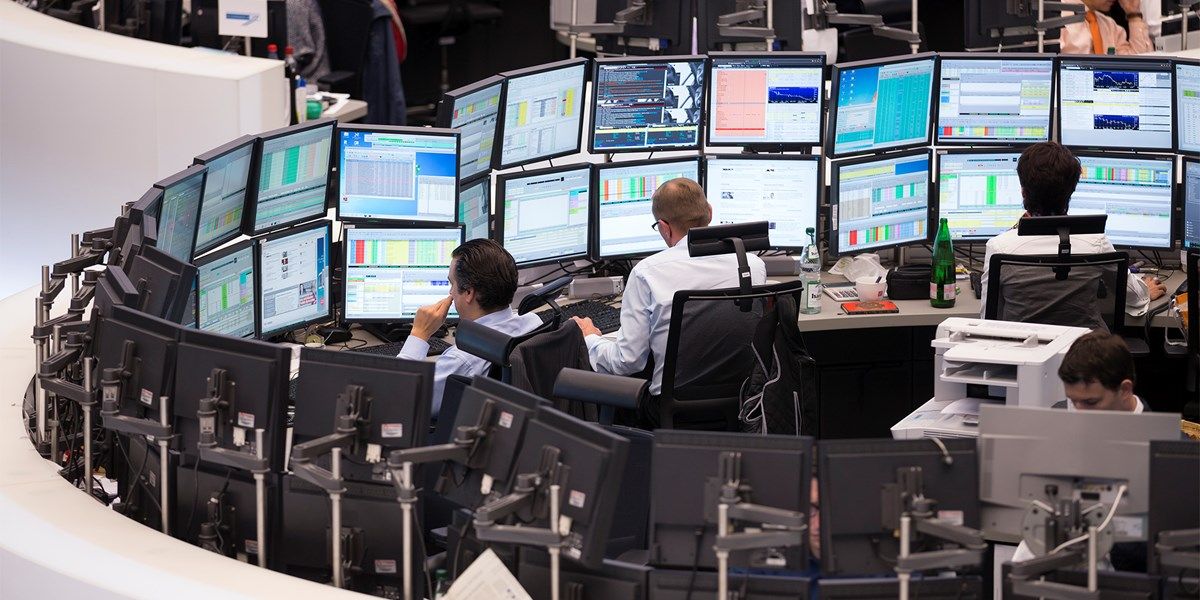(ABM FN-Dow Jones) Stock markets in Europe ended deep in the red on Monday. At a close of 456.36 points, the Stoxx Europe 600 index lost 3.8 percent. Germany’s DAX lost 3.9 percent at 15,011.13 points, France’s CAC 40 fell 4.0 percent at 6,787.79 points and Britain’s FTSE 100 was down 2.6 percent at 7,297.15 points.
Market analyst Michael Hewson of CMC Markets saw several reasons for the price declines, and the disappointing outlook that companies are sending is one of them. In addition, high inflation and central bank policies are also reasons for lower prices, as are geopolitical developments. According to Hewson, the situation at the border between Russia and Ukraine is particularly weighing on stock market sentiment.
And China’s approach to the coronavirus is also a concern, the analyst added.
A ‘buy the dip’ strategy, which has worked so well in recent years, no longer seems to be the solution, Hewson said.
The stock market in Moscow lost almost 6 percent on Monday. It was announced on Sunday that the US State Department wants families of diplomats to leave Ukraine, a sign that an armed conflict may be imminent. Russia has been building troops on the border for some time and NATO is now sending reinforcements to Eastern Europe.
“Escalation into armed conflict is likely to cause market volatility and possibly a further rise in energy prices, adding to current inflationary pressures,” said AJ Bell’s Russ Mold.
On a macro-economic level, attention was paid to European purchasing data. The French services sector is doing less well in January than in December, while Germany showed a strong recovery. Growth slowed across the eurozone.
“Activity slowed for the second month in a row,” according to Markit. Omikron took its toll. Consumers spent less at the start of the year, according to economist Chris Williamson. Still, the impact seems to be not too bad and that the industry is actually performing better in January is encouraging, according to Williamson.
The euro/dollar was trading at 1.1313 near the close. WTI oil became 2 percent cheaper.
Company news
An activist investor has taken a stake in Unilever, sources report. For example, the pressure on the food giant is increasing after the failed takeover bid of 50 billion British pounds for the consumer division of GlaxoSmithKline. It is not clear how great the importance of Nelson Peltz’s Trian Fund Management is. Unilever rose more than 7 percent in London.
Vodafone rose 4.5 percent on speculation about mergers with Three in the UK and Iliad in Italy.
In Paris the price signs were predominantly red. Telecom company Orange was the only exception and rose almost one percent.
In Frankfurt there were no risers at all. Delivery Hero and HelloFresh lost around 8 percent.
Philips underperformed expectations last year, which came as no surprise after the company’s recent profit warning. The share fell more than 4.5 percent in Amsterdam.
Accell rose 25.5 percent to 57.80 euros at the Damrak after a consortium led by KKR made a takeover offer of 58 euros, which means a value of 1.6 billion euros for the company.
Wall Street
Towards the close in Europe, the American stock markets were on average about 4 percent lower.
Bron: ABM Financial News
From Beursplein 5, the editors of ABM Financial News keep a close eye on developments on the stock exchanges, and the Amsterdam stock exchange in particular. The information in this column is not intended as professional investment advice or as a recommendation to make certain investments.
–


